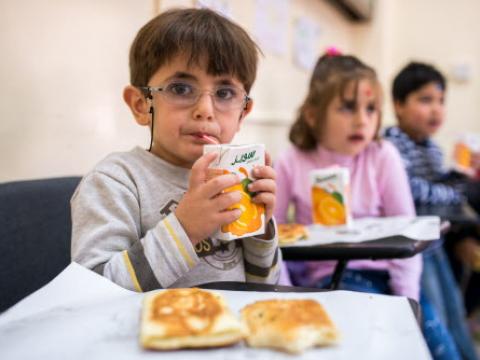Will the WHS be the crucible for change the humanitarian system needs?

In these times of significant human suffering, growing complexity, and limited resources, the humanitarian system struggles to meet the ever-increasing demands that are placed upon it. It is clear to most actors that the formal system, while offering many benefits, has yet to adapt to the new normal. Few would argue that change is required, but the content and timing of that change continue to spur passionate and lengthy debate, with some even saying that the system is perfectly adapted to resist change.
Against that backdrop of a change imperative, the announcement of the World Humanitarian Summit by the UN Secretary-General in 2013 met with a mixed response from the international community. Nevertheless, numerous consultations were convened around the globe, engaging traditional humanitarian actors, member states, private enterprise, academia, civil society and communities and individuals affected by disasters. Grievances, challenges, opportunities and innovations came to the fore, and with only months to go the World Humanitarian Summit now promises to be the crucible for change that many seek.
On 9th February the UN Secretary-General released his report for the World Humanitarian Summit. This report, One Humanity: Shared Responsibility sets the agenda for the Summit being held in Istanbul in May 2016. The report focuses on the need for the international community of member states and a wide spectrum of stakeholders to work together in facing and reducing the immense human suffering being witnessed today.
In the next few months leading up to Istanbul, organisations like World Vision must seize the opportunity to further strengthen the recommendations in the SG’s report, capture the vision in the WHS Synthesis report, and make commitments to change at the same time as challenging member states, donors, indeed all stakeholders, to do the same.
There are some key areas of the SGs report that merit focus, and some key gaps that warrant attention. Among these are:
Humanitarian systems outside of UN mechanisms must be allowed to flourish
Quite naturally, the report focuses on the formal system that has developed since Resolution 46/182, but there exists other response mechanisms outside the UN which must be allowed to flourish and coexist with the formal system. There is a plethora of evidence that demonstrates how civil society, private enterprise and faith communities are effective first responders in times of crises. Commitments to investing in local capacities, funding to local actors and improving cost-efficiency and transparency need to incorporate these systems so that the most context appropriate response can be implemented. The report doesn't go far enough in acknowledging the role of the private sector, remittances and other channels of humanitarian aid.
Learn more about World Vision's recommendations for the WHS here.
Stronger commitment to Children
World Vision welcomes the emphasis the report places on Education in Emergencies in particular adolescent and youth participation. More than 58 million children are denied access to education due to disasters[1] increasing their vulnerability to exploitation and mental and physical harm. Children have voiced that education is one of their greatest concerns when a disaster strikes. During a conflict and for children living in fragile states, the need for education is only surpassed by their need for protection. World Vision, like many child-focused agencies, sees education and child protection an integral to the sustained well-being of children.
As we applaud the much needed focus on education for children we also call for the Summit to emphasise and call for commitments to child protection as a life-saving intervention including the prioritisation of appropriate funding.
Learn more about our commitment to keeping children at the centre of the Summit here.
Benefits of the Grand Bargain must flow to the field
Over the past few years we have seen an increase in government and private donations to humanitarian appeals. Despite this significant commitment, the estimated $19.8 billion required to assist more than 89.4 million people in 2016 alone can only be met through diversifying resources and increasing cost-efficiency. The Grand Bargain proposed by the High Level Panel on Humanitarian Finance needs commitment from all intermediaries that they will pass the benefits on to those who do the final implementation. Affected communities need and deserve quality performance from the final implementing organisation, the one they deal directly with. Funding should go to those who are best placed to respond at the national and local level, whether they are local organisations, national affiliates of bigger organisations (e.g Red Cross and World Vision) or specialist organisations with excellent surge capacity (like MSF). Creating systems that aim to increase funding percentages allocated to local and national actors without ensuring transparency and the most efficient funding route possible “presents the danger that the Grand Bargain becomes a good deal for the UN or large NGOs that does not filter down to the field.”[2]
You can read more about our response to the Grand Bargain here.
Genuine change requires genuine partnership
Only through genuine partnership with affected children and communities and by keeping their needs central to our endeavour can we ensure that the Summit is a success. We need a Summit where everyone, member states, UN agencies, civil society, private sector, religious leaders, and donors come ready to make concrete commitments. The SGs report represents a good starting point, but we still have a long way to go before, and indeed after, Istanbul.
[1] UNESCO, 2015 “Education for all global monitoring report 2015” p18